Isaac Fernández-Varela
Dealing with the database variability problem in learning from medical data: an ensemble-based approach using convolutional neural networks and a case of study applied to automatic sleep scoring
Jun 16, 2019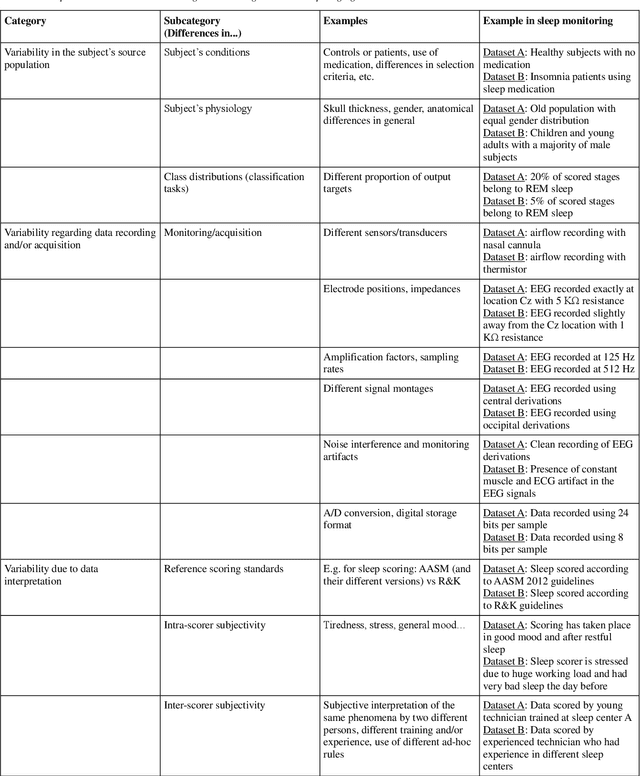

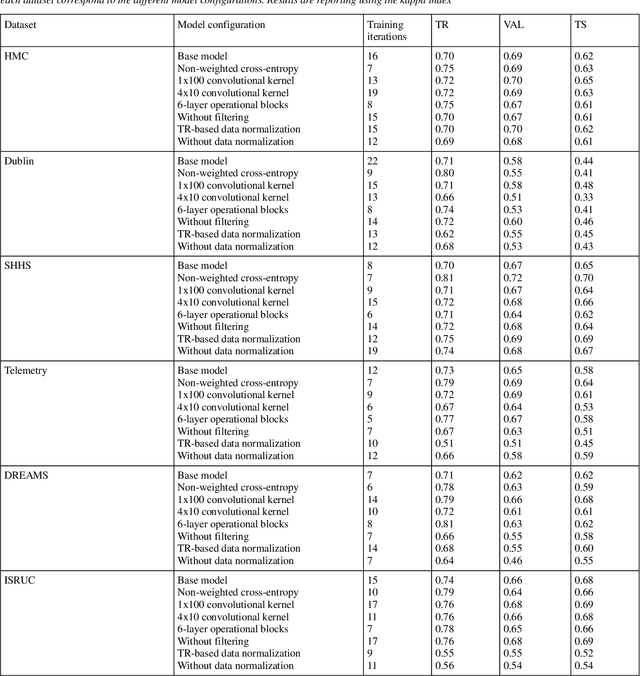
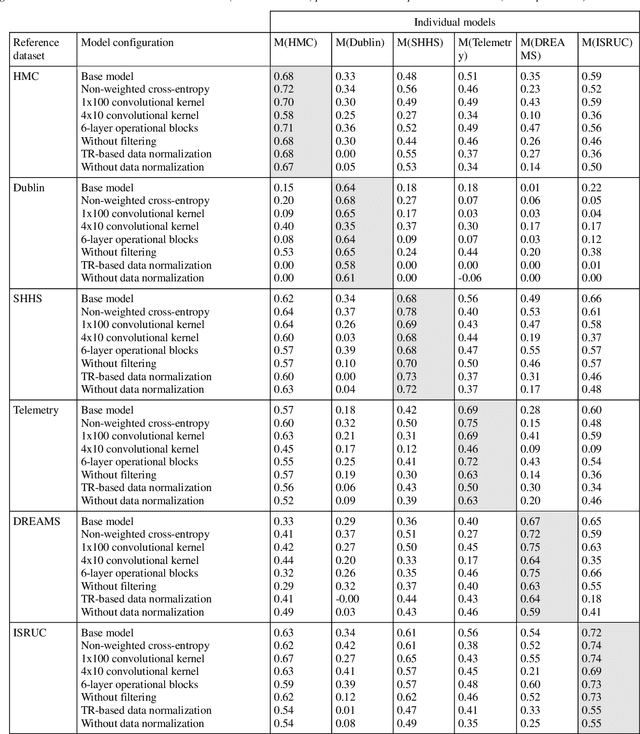
Abstract:In this work we examine the problematic associated to the development of machine learning models to achieve robust generalization capabilities on common-task multiple-database scenarios. Referred as the ''database variability problem'', we focus on a specific medical domain (sleep staging in Sleep Medicine) to show the non-triviality of translating the estimated model's local generalization capabilities to independent external databases. We analyze some of the scalability problems when multiple-database data are used as input to train a single learning model. Then, we introduce a novel approach based on an ensemble of local models, and we show its advantages in terms of inter-database generalization performance and data scalability. Further on, we analyze different model configurations and data pre-processing techniques to evaluate their effects over the overall generalization performance. For this purpose we carry out experimentation involving several sleep databases evaluating different machine learning models based on Convolutional Neural Networks
A Convolutional Network for Sleep Stages Classification
Feb 15, 2019
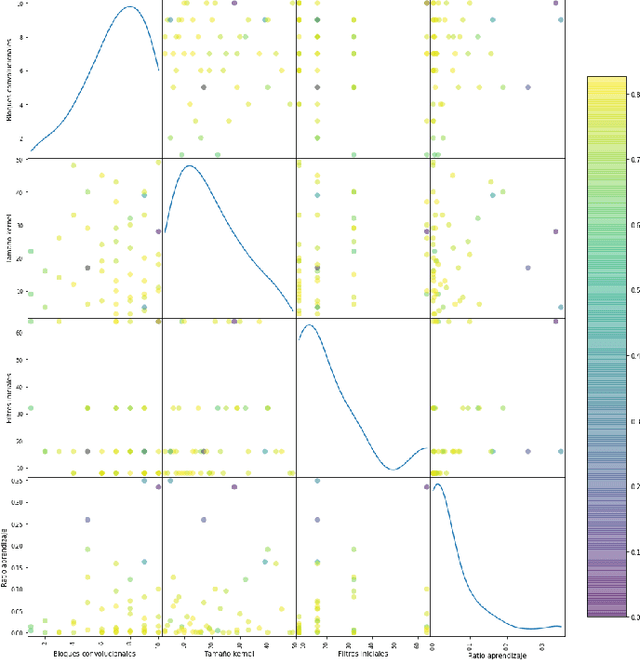
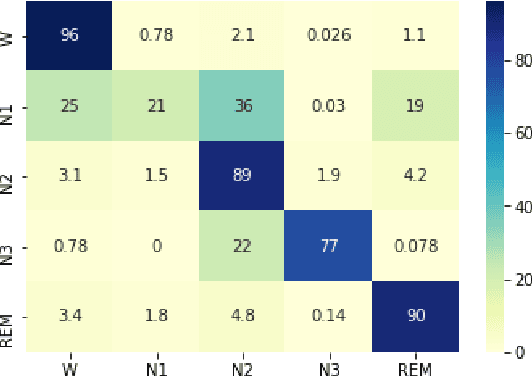
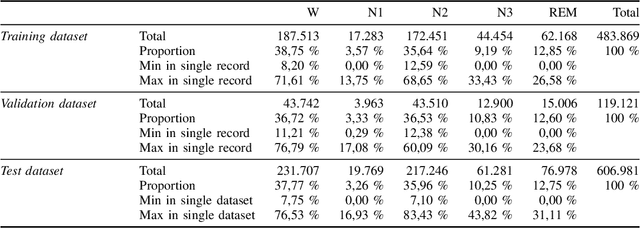
Abstract:Sleep stages classification is a crucial task in the context of sleep studies. It involves the simultaneous analysis of multiple signals recorded during sleep. However, it is complex and tedious, and even the trained expert can spend several hours scoring a single night recording. Multiple automatic methods have tried to solve these problems in the past, most of them by classifying a feature vector that is engineered for a specific dataset. In this work, we avoid this bias using a deep learning model that learns relevant features without human intervention. Particularly, we propose an ensemble of 5 convolutional networks that achieves a kappa index of 0.83 when classifying a dataset of 500 sleep recordings.
Uncertainty in Quantum Rule-Based Systems
Nov 07, 2018



Abstract:This article deals with the problem of the uncertainty in rule-based systems (RBS), but from the perspective of quantum computing (QC). In this work we first remember the characteristics of Quantum Rule-Based Systems (QRBS), a concept defined in a previous article by one of the authors of this paper, and we introduce the problem of quantum uncertainty. We assume that the subjective uncertainty that affects the facts of classical RBSs can be treated as a direct consequence of the probabilistic nature of quantum mechanics (QM), and we also assume that the uncertainty associated with a given hypothesis is a consequence of the propagation of the imprecision through the inferential circuits of RBSs. This article does not intend to contribute anything new to the QM field: it is a work of artificial intelligence (AI) that uses QC techniques to solve the problem of uncertainty in RBSs. Bearing the above arguments in mind a quantum model is proposed. This model has been applied to a problem already defined by one of the authors of this work in a previous publication and which is briefly described in this article. Then the model is generalized, and it is thoroughly evaluated. The results obtained show that QC is a valid, effective and efficient method to deal with the inherent uncertainty of RBSs
 Add to Chrome
Add to Chrome Add to Firefox
Add to Firefox Add to Edge
Add to Edge